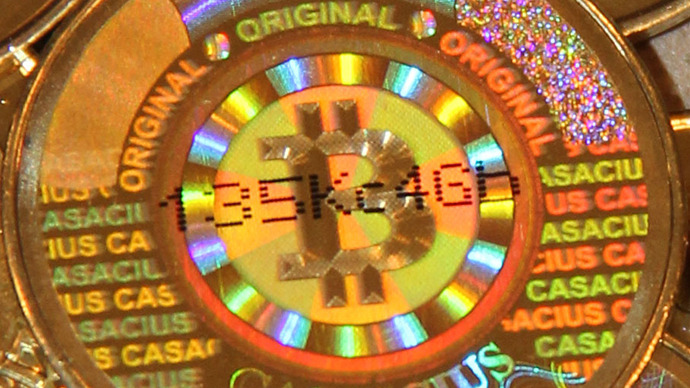Could a patent lawsuit take down Bitcoin exchanges?

In a free market capitalist system ‘price signals’ are everything. Prices are determined by buyers and sellers, and these prices are broadcast from exchanges and then on to all corners of the economy - where they are used to transact business.
In a centrally-planned economy, prices are set by fiat and implemented in a ‘top down’ approach organized by a committee; rather than by bottoms-up, animal-spirits-driven, self-interested individuals.
Where free market capitalism has failed over the past few
decades is in maintaining fair and equitable ‘price discovery’ on
various exchanges to complement those animal spirits.
Instead of buyers and sellers coming together and letting the ‘invisible hand’ of self-interest determine prices, more and more we see the dead hand of a Wall St. monopolist market-rigging determine prices.
Evidence of how badly the situation has become can clearly be seen in how the price of the petro-dollar, the post-Bretton Woods, post-Nixon’s closing of the ‘gold window’ in 1971 price of oil has not been allowed to trade - NOT according to free market principles - but rather the dead-market interference of Wall St. and Washington insiders who profit mightily from this rent-seeking corruption.
Iraq, Iran and Libya all wanted to trade oil outside of the Saudi-American petro-dollar fixed pricing scheme and all paid dearly for it.
On a more personal note, in the 1990s I developed a technology
and market for creating price-discovery for future box office
results for movies. The entrenched monopoly in Hollywood made sure
that never succeeded; breaking up the company and selling the
technology to Wall St. where it is warehoused out of reach of any
good it might have done establishing freer markets benefiting the
public's interest.
The industry’s lobbyist, the MPAA, is known for aggressive
tactics. At Aaron Swarz's funeral (the copyright freedom activist)
his father pointed to Chris Dodd, the MPAA head, as the killer of
his son - who hanged himself rather than face 30 years in prison
(the term the MPAA was looking for) to ‘send a message.'
Note that when box-office futures were attempted again a few years back it was Chris Dodd, while in Congress (remember he now heads up the MPAA) who shot this initiative down in the Dodd-Frank bill.
InTrade in Ireland was looking to do something similar for politics with their 'prediction market’. It sent out ‘price signals’ about which candidates were actually winning and losing market share ahead of elections and this infuriated Washington’s corrupt insiders. When InTrade and other 'quants' sunk Mitt Romney’s chances to win the last presidential election, the powers that be had had enough. InTrade has been taken off line without much by way of explanation.
This brings me to Bitcoin and the exchanges that broadcast current prices for Bitcoin such as MtGox.
Success of Bitcoin would mean the demise of central banks, Wall St. and the Washington insiders who trade on inside information and market manipulation. So will we see these insiders try to do to the Bitcoin exchanges (the price discovery mechanism) what they did to similar challenges to the oil price fixing, Hollywood propaganda, and political market making? One would tend to think so.
My thought is that as Bitcoin and the exchanges become more prevalent we’ll see Wall St. and the central banks challenge the exchanges on intellectual property grounds. They will argue the technology for trading in virtual securities with a virtual currency is a patented technology owned by Wall St. and that virtual market making is violating this patent (US pat. no. 5950176).
So far the collateral damage has been high for anyone trying to
combat the enemies of free markets in oil, entertainment and
politics, but perhaps the sheer size of Bitcoin's global
distributed network will prevail.
Let’s hope so. Let's hope Bitcoin does not become an
intellectual property farce the way Monsanto claims to hold the
patent rights on seeds or the way the drug industry claims to have
the patent rights on various DNA.
The statements, views and opinions expressed in this column are solely those of the author and do not necessarily represent those of RT.
The statements, views and opinions expressed in this column are solely those of the author and do not necessarily represent those of RT.














